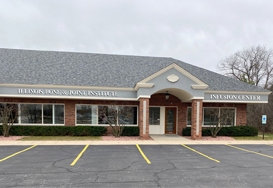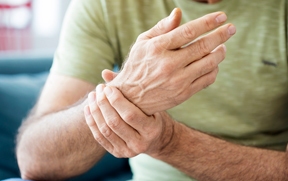Rheumatoid Arthritis or RA is a chronic autoimmune disorder that can be very painful. RA causes inflammation of the joints which can lead to stiffness and swelling in the affected area. The key to slowing the progression of the disease is recognizing the symptoms and getting treatment as early as possible. Unfortunately, recognizing the symptoms can be tricky as RA may have periods of remission and during those periods there will likely be no symptoms. The key is to listen to your body and not ignore the symptoms.
Numbness or tingling in the hands
One of the most common symptoms of RA is numbness or tingling in the hands. The inflammation compresses the nerves which may cause pain in the wrist area or the hands. Carpal tunnel syndrome is a known condition that affects the wrists and hands and also may be an early sign of Rheumatoid Arthritis.
Morning Stiffness
Morning stiffness is a common complaint of people with RA. The joints are usually very stiff and may have limited range of motion in the morning and then loosen during the day with movement and activity.
Joint Pain
Rheumatoid Arthritis can affect many areas of the body but pain is often directly related to joints. The numbness and tingling in the hands is a common area affected, but pain may be felt in the knees, elbows, shoulders, jaw or neck.
Fatigue
Fatigue by itself is not enough to classify it as a symptom of Rheumatoid Arthritis. But constant fatigue in combination with some of the other symptoms, like pain in the joints or tingling in the hands, may be a result of inflammation caused by RA.
Foot Pain
Some people with RA find they have pain in the heel or forefront of the foot as a result of the inflammation. The pain can be such that it stops men from wearing dress shoes or women from heels.
Don’t Ignore the Symptoms of RA
Rheumatoid Arthritis may affect your entire body, but more commonly you will have pain in your hands or joint areas like knees or elbows. The pain or stiffness may be worse in the morning and take you a few hours to feel like you have loosened up.
Remember, individually not all of the symptoms will be good indications of RA, but if you have multiple symptoms, that may be a better indication of the possibility of the disorder. Knowing these symptoms may help you recognize the disease early and get the proper treatment. The key is to not ignore the symptoms and to speak with an orthopedic doctor as soon as the symptoms surface.
*This content is for information only and is not intended to replace the diagnosis, treatment, or medical advice from your treating healthcare professionals. The content does not provide medical advice, does not constitute the practice of medicine or other healthcare professional services, and does not create a doctor-patient relationship. You should not rely on this information as a substitute, nor does it replace professional medical advice, diagnosis, or treatment. If you have concerns or questions, seek the advice of your healthcare professionals. If you think you may have a medical emergency, call your doctor or 911 immediately. Do not rely on electronic communications or communicate through this website for immediate, urgent medical needs. This website is not designed to facilitate medical emergencies. The use of the information is at the reader’s own risk. The links are provided for information and convenience only. We cannot accept responsibility for the sites linked or the information found here. A link does not imply an endorsement of a site.




